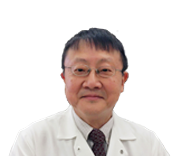Some of the genetic mutations that have been directly tied to cancer development are genes that ordinarily help repair DNA damage in cells. Genes like BRCA1 and 2, which when mutated become culprits in breast and ovarian cancer, ordinarily function to suppress tumors by repairing DNA that has been damaged.
Cancer biologist Patrick Sung was among the first to understand the roles of BRCA1 and 2 in DNA repair, and now that he is at The University of Texas Health Sciences Center San Antonio, he hopes to translate that knowledge into better clinical care for patients.
Read More
Some of the genetic mutations that have been directly tied to cancer development are genes that ordinarily help repair DNA damage in cells. Genes like BRCA1 and 2, which when mutated become culprits in breast and ovarian cancer, ordinarily function to suppress tumors by repairing DNA that has been damaged.
Cancer biologist Patrick Sung was among the first to understand the roles of BRCA1 and 2 in DNA repair, and now that he is at The University of Texas Health Sciences Center San Antonio, he hopes to translate that knowledge into better clinical care for patients.
Sung was recruited back to Texas in 2019 from Yale University School of Medicine with a Recruitment of Established Investigator Award from CPRIT. He joined the faculty as Professor of Biochemistry and Structural Biology, Associate Dean for Research and the Robert A. Welch Distinguished Chair of Biochemistry. He also serves as co-leader of the Cancer Development and Progression Program in the National Cancer Institute–designated Mays Cancer Center. Prior to his move to Yale in 2003, Sung was on the faculty of UT Health San Antonio for nearly 11 years.
Sung says that knowing more about how tumor suppressors like BRCA1 and BRCA2 function in normal cells will help medical providers determine the level of risk for cancer development in patients who have specific inherited or developed genetic mutations in these genes. “We should now be able to make a significant impact in understanding how these genes cause cancer and use this knowledge to develop therapeutics,” he says.
For example, one type of mutation may portend a high risk of developing cancer as a young woman. In that case, the patient might choose to have radical surgery, like actress Angelina Jolie, who chose to prophylactically have her breasts and ovaries surgically removed. Others may find that their mutation is typically late-acting, and their risk of developing cancer doesn’t peak until later in life, in which case they may choose to have children first, Sung says.
Sung is studying both the normal roles of BRCA and similar tumor suppressors as well as learning how mutations affect their functions. He’ll also test the sensitivity of mutated genes to a variety of drugs.
More specific knowledge of how certain mutations affect the function of tumor suppressor genes would help physicians determine who might respond best to which type of therapy and also help researchers identify mechanisms of drug resistance.
Sung says his primary role as associate dean will be as a mentor to younger researchers. Unlike at Yale, his time at UTHSC San Antonio will be primarily devoted to research. “I’m at the stage in my career where I really want to translate my research into something that will directly benefit patients,” he says, “rather than letting someone else be the driver of future discoveries.”
He says CPRIT is playing a crucial role in laying the foundation for significant discoveries in cancer research. “By bringing all these people into Texas you have a critical mass and an incredible cadre of young and talented researchers,” he says. “Scientists tend to collaborate locally, and by creating an environment of incredible intellectual depth, that’s when we will come up with really novel ways to treat cancer and predict cancer risk.”
Sung, originally from Hong Kong, was educated in England, receiving his undergraduate degree in biochemistry from the University of Liverpool and his Ph.D. in clinical biochemistry from the University of Oxford. He joined the faculty of The University of Texas Medical Branch at Galveston in 1983 and moved to UT Health San Antonio in 1993. In 2003, he left Texas for Yale University, becoming chair of the Department of Molecular Biophysics & Biochemistry in 2009.
Read Less

